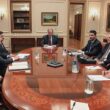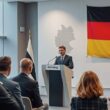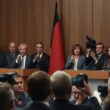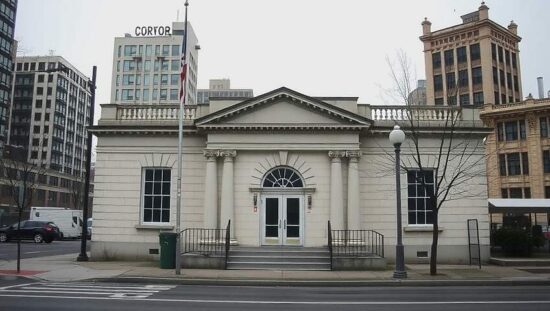The recent local elections in North Rhine-Westphalia (NRW), Germany’s most populous state, have resulted in a mixed outcome, with several key mayoral positions now headed for runoff elections. The results also indicate a significant shift in the state’s political landscape.
In Duisburg, the fifth-largest city in Germany, incumbent Mayor Sören Link of the Social Democratic Party (SPD) secured a leading share of the vote with approximately 46 percent. However, he will face a runoff against AfD candidate Carsten Groß, who garnered 20 percent of the votes in the initial round.
Similar runoff scenarios are anticipated in Gelsenkirchen, where SPD’s Andrea Henze (37 percent) and AfD’s Norbert Emmerich (30 percent) will contest the mayoral seat. While the AfD failed to secure a viable challenge in Cologne, the largest city in NRW, a duel is expected between Berivan Aymaz (The Greens) and SPD’s Torsten Burmester, trailed by candidates from the Christian Democratic Union (CDU) and the AfD. In Düsseldorf, incumbent Mayor Stephan Keller (CDU) is projected to advance to a runoff against Clara Gerlach of The Greens.
Statewide election projections suggest a holding pattern for the CDU, with estimates placing their support at approximately 34.6 percent, closely mirroring their performance five years ago. The SPD is anticipated to experience a slight decrease, dropping by roughly two to three percentage points to reach 21.9 percent. The Greens are facing losses of seven to eight percentage points, culminating in support of around 12.4 percent, while the Free Democratic Party (FDP) is also projected to lose up to three percentage points, securing 3.2 percent.
Notably, the AfD has more than tripled its support, projected to achieve 16.0 percent of the vote at the statewide level. The Left party (Die Linke) demonstrates a marginal improvement over previous results, securing 5.1 percent, representing a historically strong showing for the party within NRW.
Approximately 13.7 million eligible voters participated in the elections, viewed as an initial gauge of public sentiment approximately four months after a change in federal government. The results highlight a period of political realignment within North Rhine-Westphalia.





